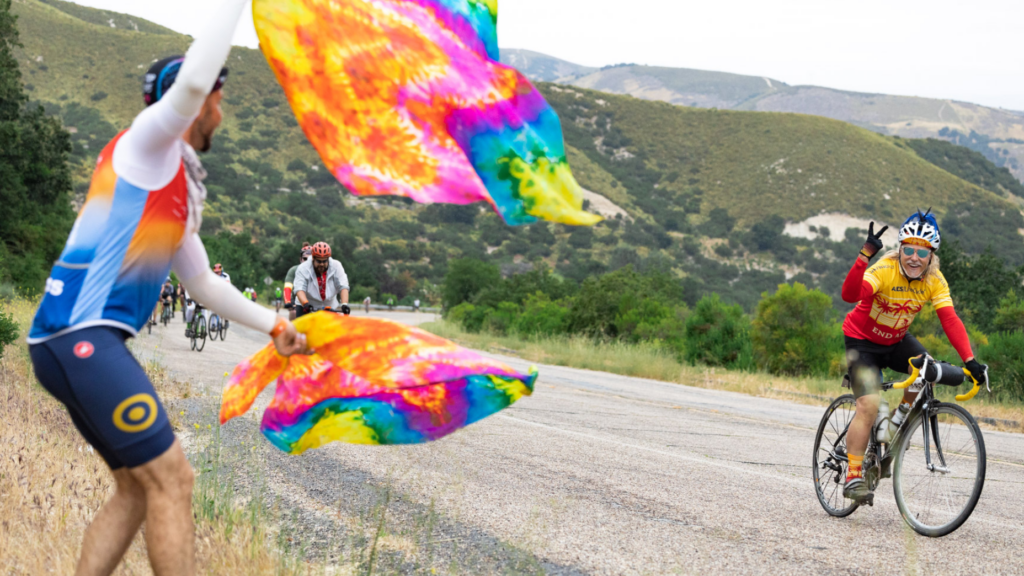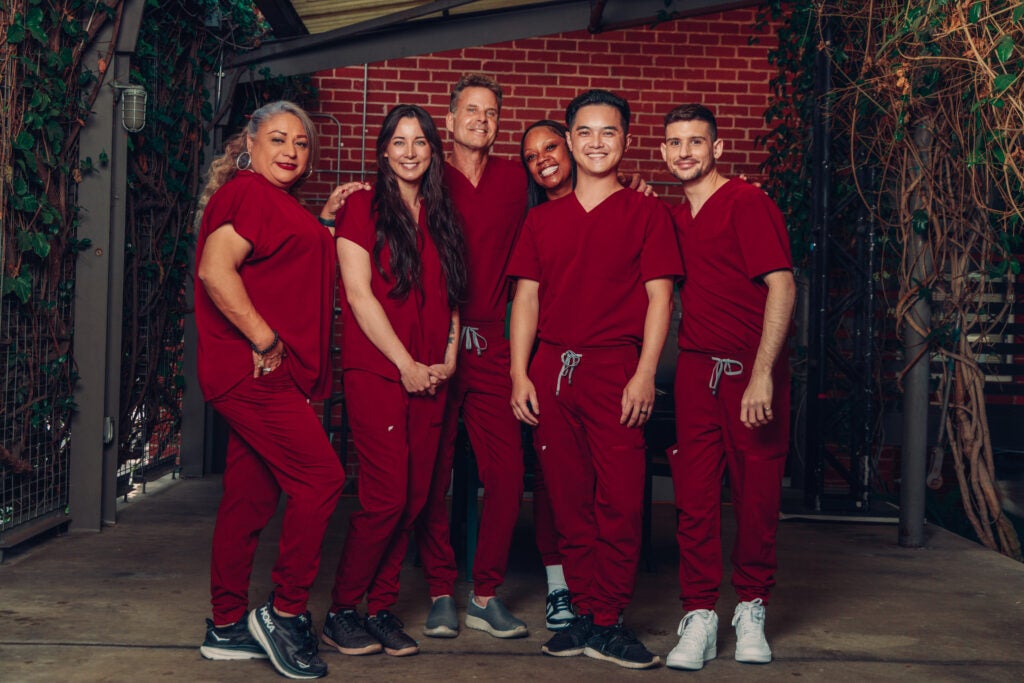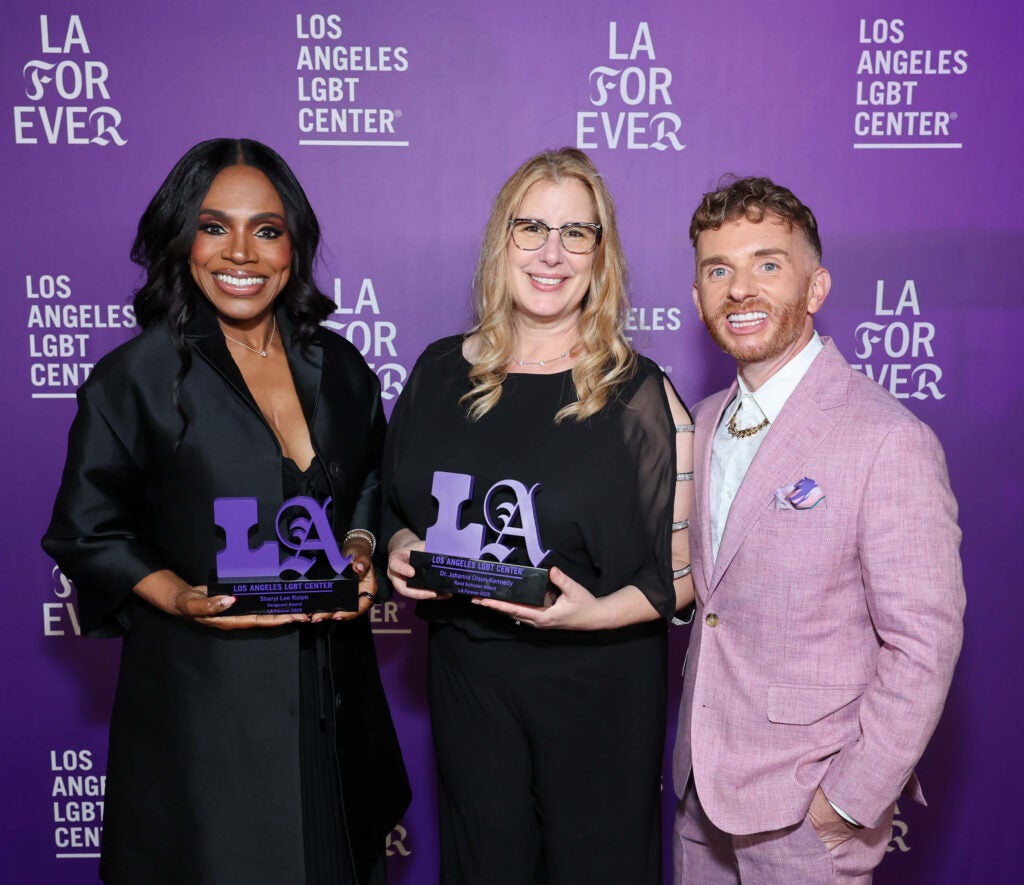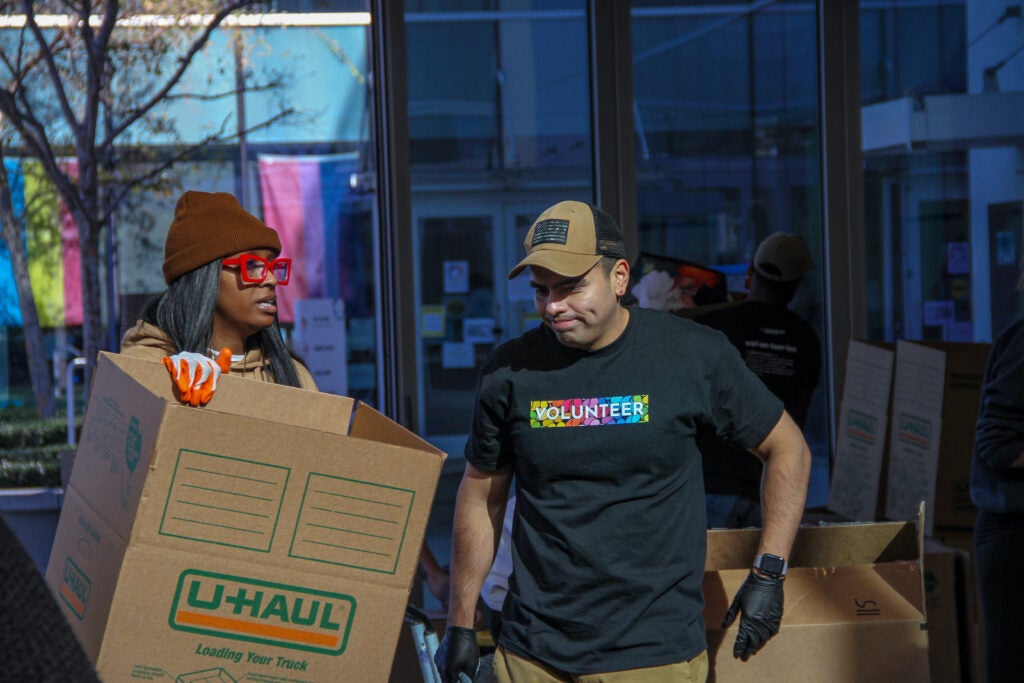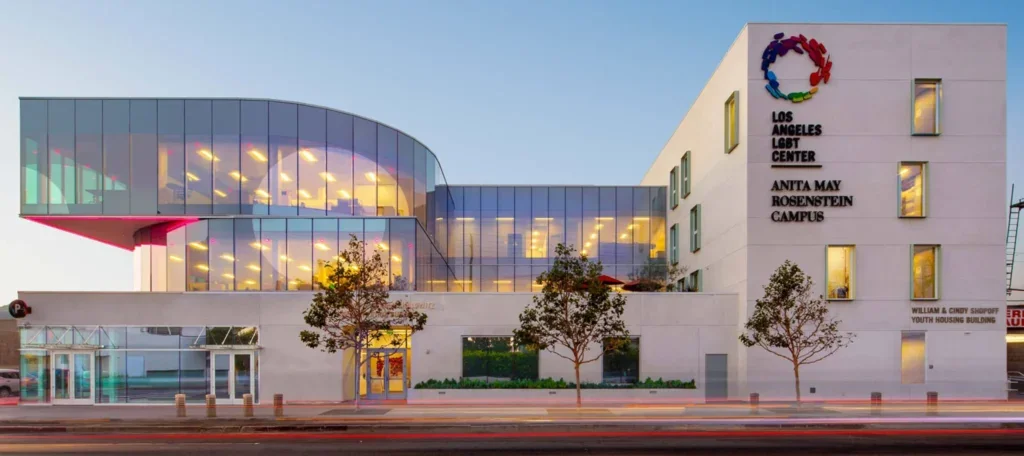Every December 1, people come together to commemorate World AIDS Day– paying tribute to those we’ve lost to HIV/AIDS while fighting to end stigma. Our partners at Fabletics Scrubs proudly joined us this year to uplift and outfit the unsung heroes, the providers extending culturally competent care year round through our Health Services.
When World AIDS Day was founded in 1988, the HIV and AIDS crisis was at its peak, with devastating impacts on communities around the globe—including disproportionate rates of illness and death among the LGBTQ+ community. Today, medical advancements and increased access to treatment and prevention have saved countless lives, but it’s important that we remember that HIV and AIDS are not yet a thing of the past. There are approximately 1.2 million people in the U.S. who are living with HIV, with Black and Latinx communities disproportionately affected.
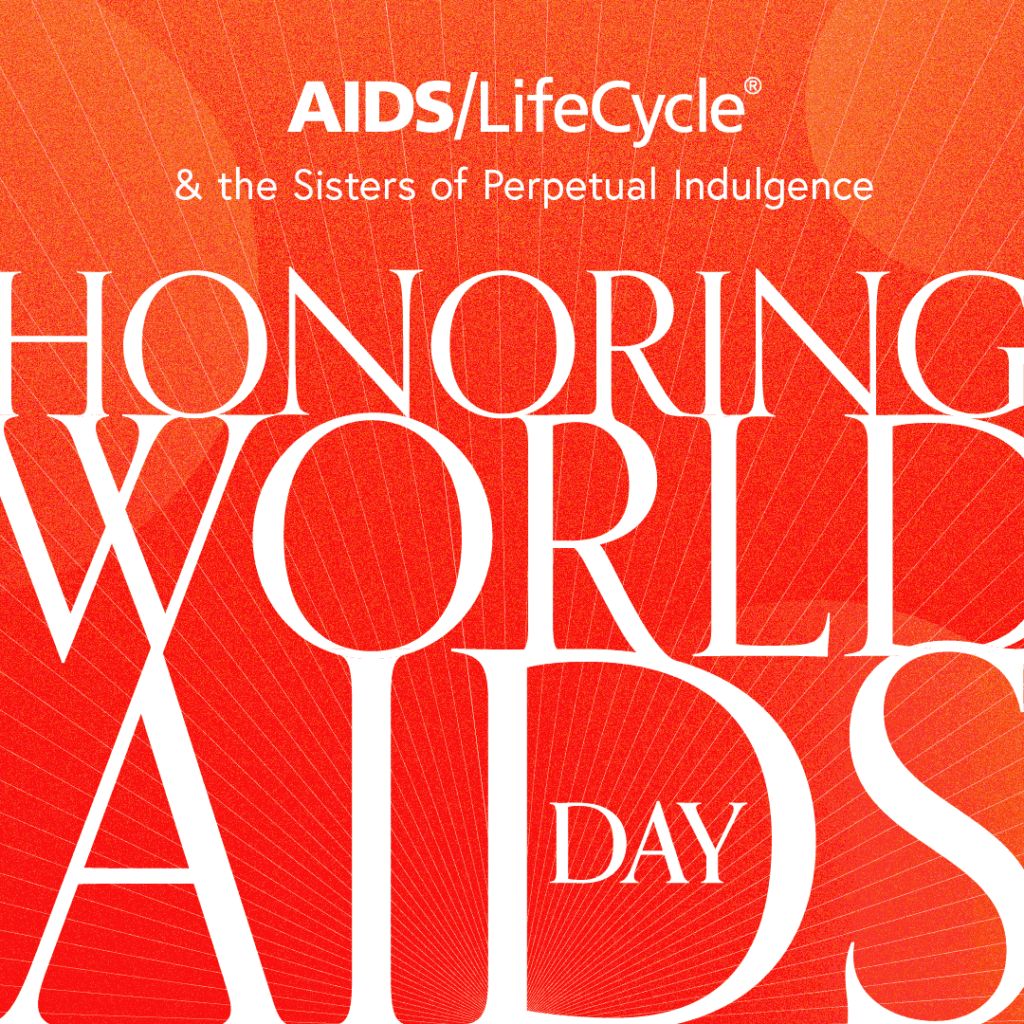
Since the 1980s, the Los Angeles LGBT Center has been on the frontlines of both caring and advocating for people living with HIV and AIDS. Our team of medical experts, spread across multiple sites throughout the city, offer a comprehensive range of services, including testing, treatment, prevention, education, and more. Below, we’re highlighting just a few of the critical health care providers at the Center who ensure our patients are treated with compassion and dignity.
“It’s a lot of work, but we are all a team. We hang in there together,” says Cheyenne Sharp, a Care Manager within the Center’s Health Services department. “I love my coworkers. We support each other and take care of each other so that we can provide our patients with the best care that we possibly can.”

Robyn Love, Medical Assistant
How long have you been at the Center?
I’ve been here a little over a year.
What is the most rewarding part of your work?
I love working in community-based clinics because I like being around regular people. Not just like, Oh, you have a PPO? Lets collect your copay, blah, blah, blah. No, we do a lot of stuff at the Center. We do everything. I love that I can go in and talk to somebody and really be able to help. Sometimes I’ll take longer with a patient, even if all I can offer is a listening ear. Like, if they come in and I can see it on their face, I’ll be like, What’s wrong? Are you okay? I have kids, so I guess it’s just the mother in me. If they open up and tell me, I’m gonna listen—period. If all you need is listening, I can listen. If you want to ask me about it, I’ll do what I can to help.
Can you share a little about your experience working with people with HIV or AIDS?
We have a lot of HIV patients, and sometimes you just have to understand that you never know what people are going through. We know that they don’t always feel good, but we’re there to help them. I’ll go to the depths for them. I’ll call the pharmacy, I’ll call the imaging facility, just because I just want to be here to help them as much as I can.
What is your hope for the future of HIV and AIDS care?
I feel like there’s been a lot of progress, but one area where they might need more help is housing. We’re able to help them get their meds, or connect them to other resources, but there are still a lot of people with HIV who are unhoused and aren’t getting the care they need. With the medication we have now, nobody should have to die from HIV or AIDS.
Why is it important that we continue to commemorate World AIDS Day?
Because we’ve come a long way. We’ve come from people possibly not making it a year to now, where we have patients living 30 years or even more on the right medication. So that’s big. But it’s about sharing that information. You can be saved if you have HIV, you can still live a long, happy life.

Peter Pagan, Linkage to Care Specialist
How long have you been at the Center?
I’ve been at the Center for about two years. I started as a security guard, but I saw a job posting for the call center and decided I wanted to take the opportunity to be more involved with Health Services. I learned a lot in that role—more than I ever would have thought. Now, I’m a Linkage to Care Specialist, working with HIV-positive patients and connecting them to care. I’m also doing my Medical Assistant externship, which has been really great. It’s been a really good experience to grow and do more for the community.
What advice would you give to someone thinking about pursuing a career in health care?
I would definitely say start in a role like the call center. Start in a role that introduces you to health care, medical terms, things like that. But, definitely, go for it. I went from working at the call center to a training program to be a medical assistant. And that was so rewarding for me, being able to complete that program and advance in my field.
What is the most rewarding part of your work?
For me, personally, it’s the connections that we make with the patients. Originally, when I was only talking to the patients over the phone, I wasn’t able to be in the room with them. Being able to see members of the community and really get to know them and how they’re doing is something that’s important to me. That’s what I really wanted to do.
It’s also been so great to join the Center and be part of such a positive, welcoming environment. It’s been such a place of growth for me. I came to LA to find a place where I felt that I fit—somewhere I could live life on my own terms. The Center was that place for me.
What do you hope for the future of HIV and AIDS care?
Well, I hope for a breakthrough cure, and hopefully that will happen one day. But in the meantime, we need more of what I’m doing now, which is Linkage to Care. We’re really persistent on getting people in as fast as possible, and we do our best to really help them manage their care. So if we have five appointments scheduled for someone, we’ll go through all of it with them and make sure they understand. And I think we’re doing a really good job. The Center is a leader in this work, and it’s been great to be able to get in the room with people and really be a source of reassurance. They know that we’re here to help.

Alex Vega, Patient Compliance Coordinator
How long have you been at the Center?
Next March will be 20 years at the Center. It’s been awesome to see it go from a small clinic to what it is now. It used to be like six medical assistants, and now it’s like 16. Maybe like 10, 11 buildings? It’s been amazing to see it grow.
What made you want to pursue a career in health care?
Actually, I used to work at a consumer drug store at the corner of Schrader, down the street from McDonald/Wright. I was a clerk, and I would always see Cyndi Harrison and the other providers coming in. I would always say to myself, I’m gonna work there one day. But as a single mother with two kids and taking care of my mom, going through the medical assistant program, it was difficult. But I decided to do it. And I got connected to the Center by my instructor, who knew Cindy. And that was how I got started.
What advice would you give to someone thinking about pursuing a career in health care?
I would say not to think about it so much. I do tell young people, when they come up to me and say, “I did the medical assistant program, but I’m not sure if I want to do the RN, LPN, etc.” I say, “No, go for it. Don’t think about it.” Because if you think too much, you’re gonna stay, and you’re not gonna move forward. So just do it. You’ll be able to move forward, reach your goals, and be whatever you want to be.
How have you seen HIV and AIDS care change over the years?
It’s amazing. We’ve come a long way from when people had to take 8-10 pills, sometimes as much as twice a day. Back then, it was really hard. Now, we have patients who have been coming in for 30, 40 years.
Are there any stories or experiences that you carry with you in your work?
Even though I’m in another position now, I still see some of the same patients from back then from time to time. One of them came up to me and said, “I’ll never forget that when I was in one of my worst moments, first starting this medication, you heard me.” And I remember this patient. He would come in, and some days would be really hard. But I would say, “Keep it up, you can do it. Keep up with your medications.” And he made it.

Greg Bowles, Associate Director of Pharmacy Operations
How long have you been at the Center?
I started 14 years ago as a volunteer and got hired on a year later. And I’ve been here ever since. It’s the only place I ever wanted to work. Currently, I’m Associate Director of Pharmacy Operations, managing a staff of about 45, driving production, and taking care of the patients—everything from software to staffing and scheduling. It’s my passion. It’s what gets me out of bed every single morning, getting to work and taking care of our clients.
What is the most rewarding part of your work?
Every now and then, you’ll come across a client—and it may only happen once every few months—but you know you’ve made a difference in their lives. That’s what makes it worth it—all 14 years. I’ve had clients who have been visiting the Center’s pharmacy as long as I’ve been working here. We know their names, their families, what’s going on in their lives. It becomes really personal. This is the only place I’ve wanted to work because of the mission and the work we do serving the community.
How does having a personal connection with patients impact care?
If you have a vested interest, if you know about the patient and what they’re going through, including the challenges that they’re facing, that makes all the difference. You don’t get that at other places.
Can you share a little about your experience working with people with HIV or AIDS?
HIV is tough, but it’s gotten better with the treatments that are available now. The medications are getting better every single day. We’re getting into long-acting injectables now; it’s no longer a death sentence. It’s been nice to see that transition from when converting from negative to positive meant that you weren’t going to make it to your 30th birthday. But now, that’s all changed. It’s huge, and we get to play a small little part in that.
What do you hope for the future of HIV and AIDS care?
A cure. I won’t rest until there’s a cure.

Tam Phan, Clinical Pharmacist
How long have you been at the Center?
This will be my fifth year at the Center. It feels like the time went by really fast. Maybe it’s true that time flies when you’re having fun, maybe it’s the amount of work, but it’s been an exciting journey.
Can you share a little about your experience working with people with HIV or AIDS?
As a Clinical Pharmacist—unlike a Dispensing Pharmacist—we really focus on the health of our patient through a patient-centered approach. Patients who are taking more than five medications or 10 medications is kind of the average here. Our providers refer them to us if they have complex medication lists to see if we can optimize it in some way. Whether that’s simplifying it, or adding on medications that are indicated but aren’t already present. We also address things like drug-drug interactions and adherence, which is very important for HIV care.
I think that’s why the work is so meaningful to me. Our healthcare system is so fragmented, but once patients come to a pharmacist, it all comes down to medicine. So we have a very big-picture understanding of what their health challenges and goals are, what the patient is trying to achieve.
How does having a personal connection with patients impact care?
I think for the LGBTQ+ community, there is a predisposed sense of mistrust in our medical system. By having that long-standing rapport with our patients, we’re able to connect with them better, have them share with us what’s going on with their health, what their goals and needs are. That sense of connection and trust makes it easier to not only provide care, but it also makes the work more meaningful because you actually get to see this person change over time.
Are there any stories or experiences that you carry with you in your work?
In 2020, I had a patient referred to me who came in with a wound on his leg because he had a fall in downtown LA. But when he came in, his blood pressure was through the roof. I asked him what medications he was taking, and he brought out like, two trash bags worth of medications. Some are duplicates, some are expired, some are what we call therapeutic duplication, or having multiple medications in the same classes. He was actually on two blood thinners instead of one, so thank goodness he didn’t bleed out from that fall. He also had glaucoma, so he couldn’t see the medicine bottles or how to take them. Ever since then, we’ve been working with him to sort out his medications on a monthly basis. And now, you can actually see that he looks better. He’s more energetic. He even brings his dog with him sometimes.

Cheyenne Sharp, Care Manage
How long have you been at the Center?
I’ve been doing primary care for almost a year. Prior to that, I did three years in MCC, which is HIV case management. It’s been great. It’s a lot of work, but we are all a team. We hang in there together. I love my coworkers. We support each other and take care of each other so that we can provide our patients with the best care that we possibly can.
Are there any stories or experiences that you carry with you in your work?
Oh, so many. In case management, you build very connected relationships with your patients. You have to have a really good rapport to be able to empower them to make the changes that they need for their health. In our environment, it can be hard for people to find the motivation to make those decisions to take care of themselves and implement those changes. So having a support system, having those very connected relationships is extremely important to move any health care marker.
How does having a personal connection with patients impact care?
Having that trust in people is a big thing. And for myself, it makes it a very rewarding job. Building connections is the number one priority for all human beings, so being able to have that on a very one-on-one basis is important for all of us. And I think the Center does a really good job of that. There are deep, long-standing relationships that are built with your patients, and that’s why they continue to come back. That’s why there are results, because they know that we care. It’s not just a transaction. It’s a relationship that you build. We work together and collaborate with them to get the best possible outcomes.
Can you share a little about your experience working with people with HIV or AIDS?
Our programs are wraparound services. We try to provide them with social services, health services, housing, whatever resources that we have available. Because that can impact them in the long term. If somebody can’t get food, it’s really hard to take your medication. If somebody doesn’t have stable housing, that can really impact their long-term health. We do a really good job of making sure that our patients are not only in care, but that they have those connections to help manage their care long-term.
Why is it important that we continue to commemorate World AIDS Day?
At the beginning of the AIDS crisis, we had so many lives that were lost—and we still have lives that are lost today. We’ve come so far in treatment, but it’s important to make sure that we don’t forget. It’s a chance to honor those who have lost their lives and really educate people so there’s less stigma surrounding HIV and AIDS.
Read More
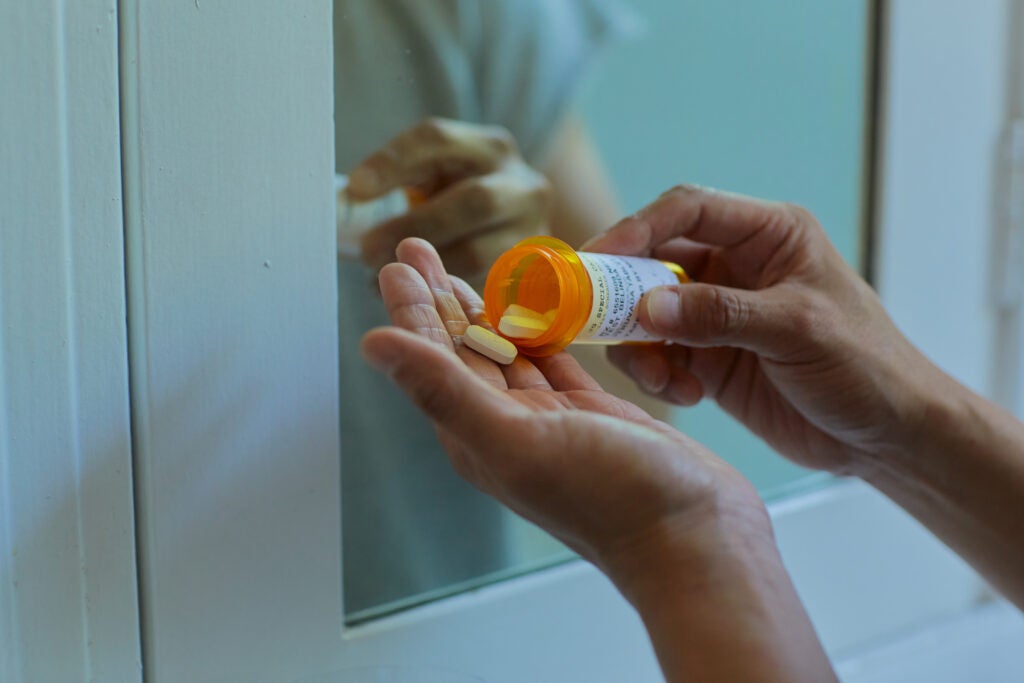
Dispensing Culturally Competent Care: The Center’s Patient-Centric Pharmacy Does Much More Than Fill Prescriptions
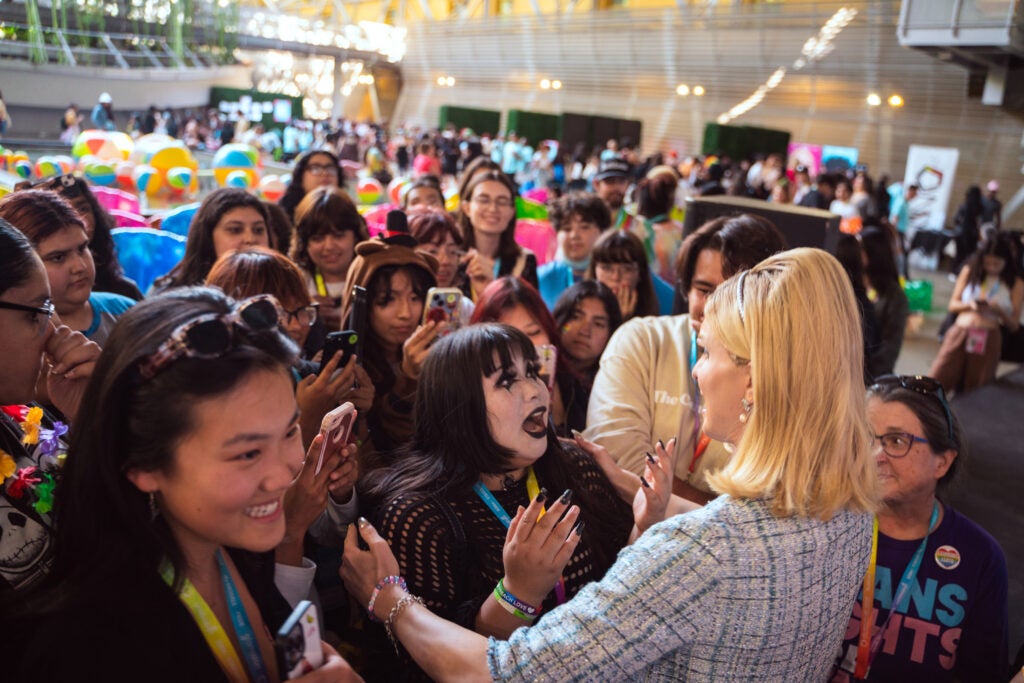
Dylan Mulvaney, Hayley Kiyoko Inspire More Than 1,000 LGBTQ+ Youth and Allies at 31st Models of Pride Festival
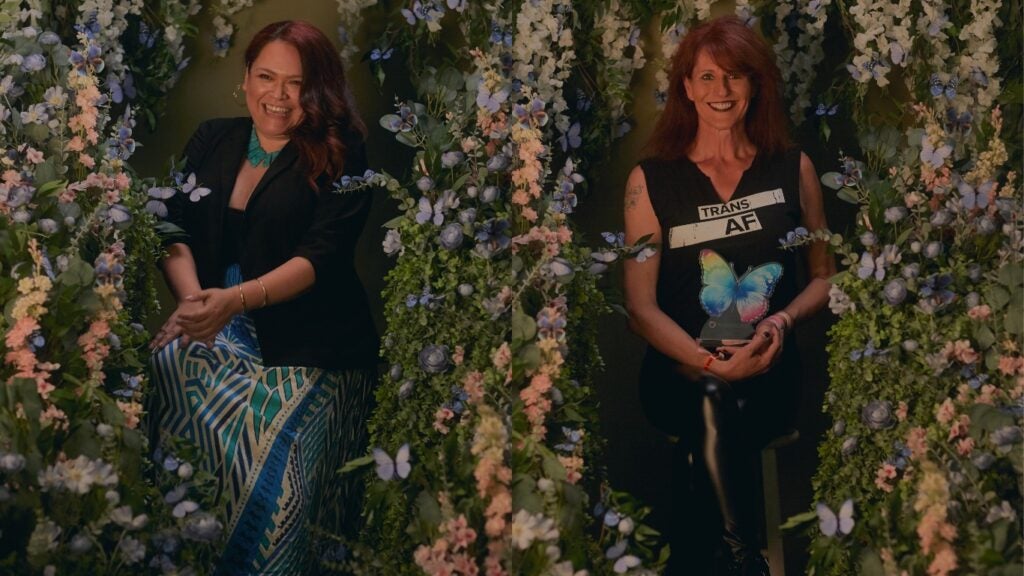
Trans Awareness Week Is Not Enough
